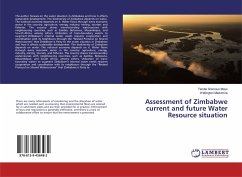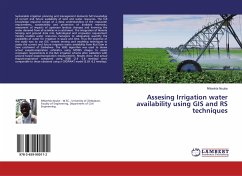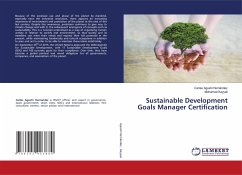
Assessment of Zimbabwe current and future Water Resource situation
Versandkostenfrei!
Versandfertig in 6-10 Tagen
27,99 €
inkl. MwSt.

PAYBACK Punkte
14 °P sammeln!
The author focuses on the water situation in Zimbabwe and how it affects sustainable development. The biodiversity of Zimbabwe depends on water. The national economy depends on it. Water flows through every economic sector in the country: agriculture, energy, industry, mining, tourism, and fisheries. The country shares trans-boundary watercourses with neighbouring countries, such as Zambia, Botswana, Mozambique, and South Africa, among others. Utilization of trans-boundary waters to augment Zimbabwe's internal water needs requires cooperation and coordination with its neighbours through the "R...
The author focuses on the water situation in Zimbabwe and how it affects sustainable development. The biodiversity of Zimbabwe depends on water. The national economy depends on it. Water flows through every economic sector in the country: agriculture, energy, industry, mining, tourism, and fisheries. The country shares trans-boundary watercourses with neighbouring countries, such as Zambia, Botswana, Mozambique, and South Africa, among others. Utilization of trans-boundary waters to augment Zimbabwe's internal water needs requires cooperation and coordination with its neighbours through the "Revised Protocol on Shared Watercourses" that Zimbabwe is Party to the water situation in Zimbabwe and how it affects sustainable development. The biodiversity of Zimbabwe depends on water. The national economy depends on it. Water flows through every economic sector in the country: agriculture, energy, industry, mining, tourism, and fisheries. The country shares trans-boundary watercourses with neighbouring countries, such as Zambia, Botswana, Mozambique, and South Africa, among others. Utilization of trans-boundary waters to augment Zimbabwe's internal water needs requires cooperation and coordination with its neighbours through the "Revised Protocol on Shared Watercourses" that Zimbabwe is Party to.












